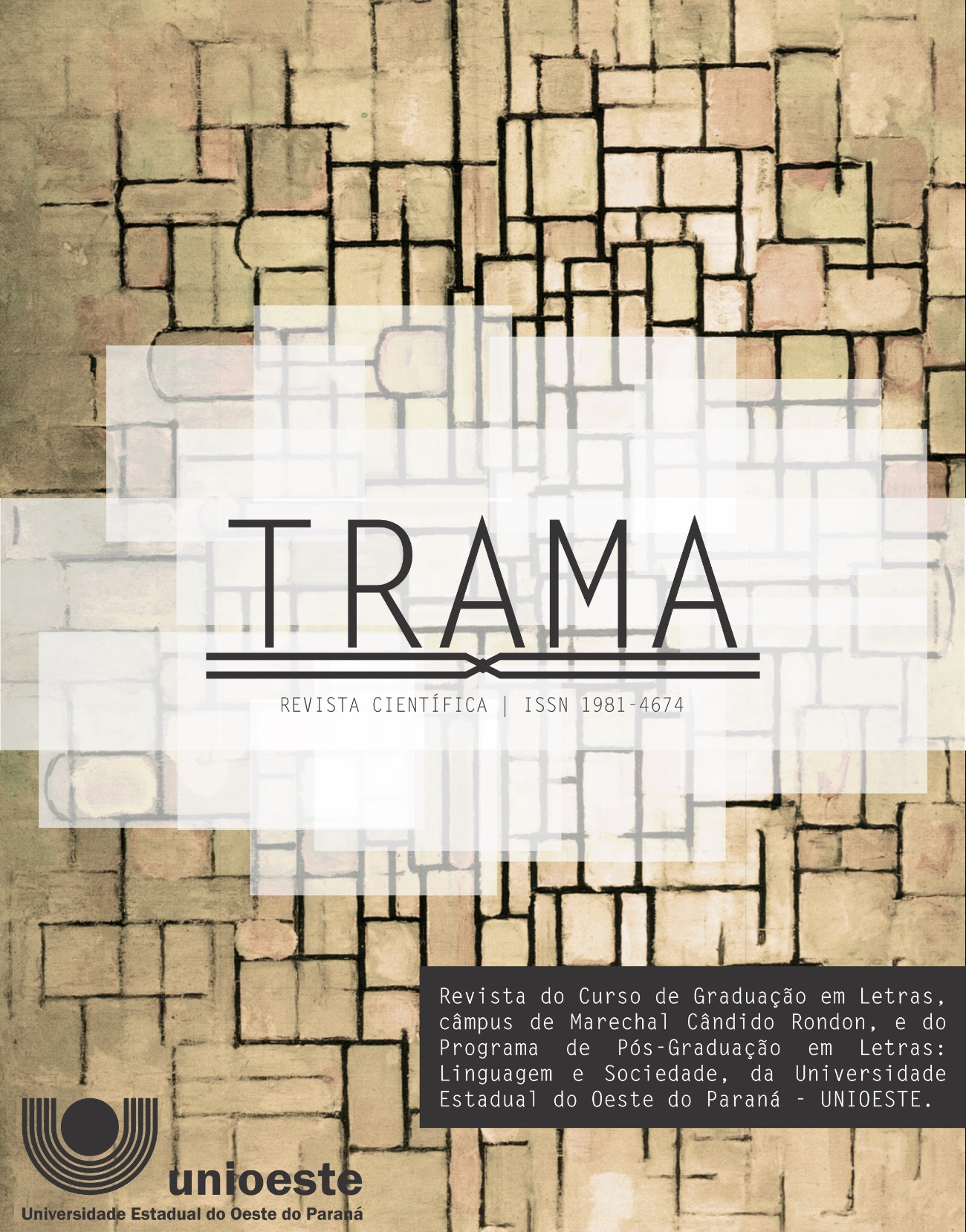MANUAL DO TDAH E O DISCURSO SOBRE A INFÂNCIA
DOI:
https://doi.org/10.48075/rt.v18i44.29535Keywords:
Discurso, Dito, Não dito, Infância, TranstornoAbstract
This article uses as a method and theory the French Discourse Analysis, paying attention in discursive elements that produce meaning effects on what childhood is. The central theoretical issue is the relationship between said and unsaid, about certain production conditions, producing an effect on a corpus that points to health/disorder in the child's behavior. This is an excerpt from a dissertation, using 5 of the 18 criteria for Attention Deficit/Hyperactivity Disorder, from the Diagnostic and Statistical Manual of Mental Disorders (version V). For this study, texts by Pêcheux (1993), Orlandi (2002, 2011, 2013), Gadet and Hak (1997) were contemplated, making it possible to print the theory on the chosen discursive materiality. The materiality of discursive sequences occupies the status that is ideologically attributed to medicine, as it is considered a science of care and a lot of solutions for specific treatments, whether medicated or not. Thus, this study analyzes extralinguistic and, therefore, discursive relationships, in order to understand what the manual says about child behavior. It is believed that the material studied in this research represents part of a relevant articulation for reflection on the child that one wants today, understanding that this objective can be achieved through the discursive meaning effects of the manual on a supposed “pathology”. It is between what is said about the disorder and what is not said about normality that defenses of theses are obtained based on discourses that explain and set out to solve child behavior.
References
DSM – V. Manual Diagnóstico e Estatístico de Transtornos Mentais. 5 ed. American Psychiatric Association, Porto Alegre: Artmed, 2014.
GADET, Françoise; HAK, Tony. Por uma análise automática do discurso: uma introdução à obra de Michel Pêcheux. Tradução: Bethânia S. Mariani et al. 3 ed. Campinas: Editora da Unicamp, 1997 [1969].
HENRY, Paul. Os fundamentos teóricos da “análise automática do discurso” de Michel Pêcheux (1969). In: GADET, Françoise; HAK, Tony. Por uma análise automática do discurso: uma introdução à obra de Michel Pêcheux. Tradução: Bethânia S. Mariani et al. 2 ed. Campinas: Editora da Unicamp, 1993.
ORLANDI, Eni Puccinelli. Análise de Discurso: Michel Pêcheux. 4 ed. Campinas: Editora da Unicamp, 2015
ORLANDI, Eni Puccinelli. Análise de Discurso: Princípios e Procedimentos. 11 ed. Campinas, SP: Pontes Editores, 2013.
ORLANDI, Eni Puccinelli. As formas do silêncio: No movimento dos sentidos. 5 ed. Campinas, SP: Editora da Unicamp, 2002.
PÊCHEUX, Michel; FUCHS, Catherine. A propósito da análise automática do discurso: atualização e perspectivas (1975). In: GADET, Françoise; HAK, Tony. Por uma análise automática do discurso: uma introdução à obra de Michel Pêcheux. Tradução: Bethânia S. Mariani et al. 2 ed. Campinas: Editora da Unicamp, 1993.
PIAGET, Jean. A psicologia da inteligência. Tradução: Guilherme João de Freitas Teixeira. Petrópolis, RJ: Vozes, 2013.
SAMPAIO, Simaia; FREITAS, Ivana Braga de (Orgs.). Transtornos e dificuldades de aprendizagem: entendendo melhor os alunos com necessidades educativas especiais. 2 ed. Rio de Janeiro: Wak Editora, 2014.
Downloads
Published
How to Cite
Issue
Section
License

This work is licensed under a Creative Commons Attribution-NonCommercial-ShareAlike 4.0 International License.
Aviso de Direito Autoral Creative Commons
Política para Periódicos de Acesso Livre
Autores que publicam nesta revista concordam com os seguintes termos:
1. Autores mantém os direitos autorais e concedem à revista o direito de primeira publicação, com o trabalho simultaneamente licenciado sob a Licença Creative Commons Attribution que permite o compartilhamento do trabalho com reconhecimento da autoria e publicação inicial nesta revista.2. Autores têm autorização para assumir contratos adicionais separadamente, para distribuição não-exclusiva da versão do trabalho publicada nesta revista (ex.: publicar em repositório institucional ou como capítulo de livro), com reconhecimento de autoria e publicação inicial nesta revista.
3. Autores têm permissão e são estimulados a publicar e distribuir seu trabalho online (ex.: em repositórios institucionais ou na sua página pessoal) a qualquer ponto antes ou durante o processo editorial, já que isso pode gerar alterações produtivas, bem como aumentar o impacto e a citação do trabalho publicado (Veja O Efeito do Acesso Livre).
Licença Creative Commons
Esta obra está licenciada com uma Licença Creative Commons Atribuição-NãoComercial-CompartilhaIgual 4.0 Internacional, o que permite compartilhar, copiar, distribuir, exibir, reproduzir, a totalidade ou partes desde que não tenha objetivo comercial e sejam citados os autores e a fonte.


